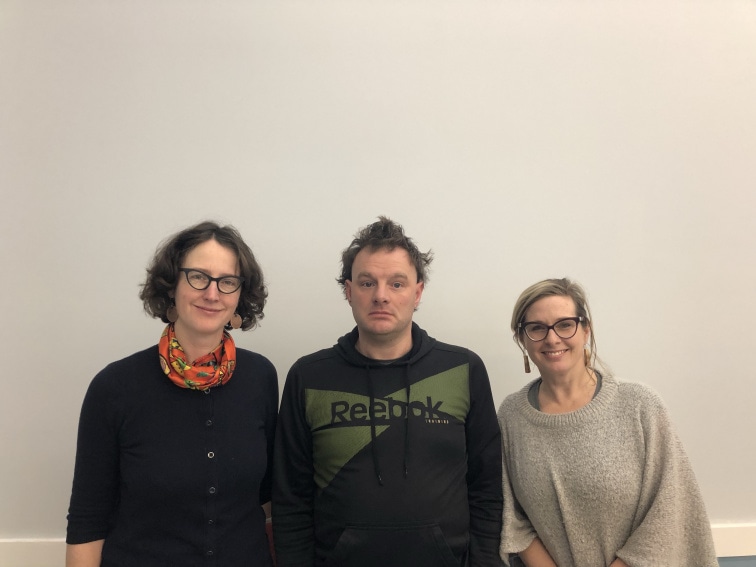
KJIPUKTUK (Halifax) – Some people on social assistance have jobs, and while you work you are entitled to keep a portion of the money you earn.
However, if you lose your job and for a period of time you receive employment insurance (EI) benefits, then those benefits get clawed back at 100 percent.
The same 100 percent clawback happens when you receive income through self employment, and also when you receive disability payments by the Canada Pension Plan. Those payments too are clawed back one hundred percent.
I wrote Premier Stephen McNeil a letter about this. “Taking that money is insulting. People should be allowed to keep these payments, since they contributed to it while working,” I told him.
Anyway, within the past couple of weeks a petition was drafted and is now being circulated. Here it is:
As part of their “transformation” of ESIA, the Liberal government has expanded the wage exemption to allow clients to keep more of the money they earn before seeing a reduction in their income assistance.
However, EI benefits and self-employment income continue to be clawed back at 100%.
We, the undersigned, call on the provincial government to immediately address this differential treatment of income by changing ESIA policy so that all employment related income, including earnings from self- employment and EI, be treated the same as employment income from other sources.
Name Address Signature
Province house resumes business on February 28th. NDP MLA Susan Leblanc will present the petition I am talking about in the upcoming sitting. It is the hope of the community that 100 percent clawbacks from Employment Insurance, self employment earnings, etc., will stop, and that the spring budget will reflect that.
In addition to Susan Leblanc being supportive, it turns out my own MLA for where I live, Lisa Roberts, also supports the reasoning behind this position.
Recently, as you notice in the picture for this story, the three of us had an opportunity to meet briefly and discuss why it is so important that the general public supports this position.
It is all about the fact that when money from other sources of income are clawed back at 100% that makes it downright difficult to make ends meet for those who have no choice in life but to depend on the income assistance program.
I recently talked with some seasonal workers in my community who have to apply for employment insurance every summer after they are laid off from their jobs. They tell me that in the summer months they lose $400 to $800 per month from their income assistance allowances because of the 100 percent clawback.
Just like Susan Leblanc, Lisa Roberts also mentioned to me that her constituency office gets calls from people whose rent and power bills get behind because of the limited money to live on.
We also talked about something else that both MLAs have in common. Both constituencies have a large amount of people who rely on the places I talk about in some of my other stories, meaning drop-ins and soup kitchens.
In Susan’s constituency you have the the Dartmouth North Community Food Centre and its food kitchen. In Lisa Roberts’ constituency of Halifax Needham you have Hope Cottage, Souls Harbour, The Brunswick Street Breakfast program, and CMHA Mental Health drop-in. These places are just some of the places I talk about that people living in poverty depend on in order to get out in their community and have a life.
If we stop the clawbacks, we may reduce dependence on these places. In the view of financially better off general society, the only people who should be using these places are those who are totally homeless and living on the street. Of course between myself, Lisa Roberts, and Susan Leblanc, we all know this is not true.
It is all about the fact that 100 percent clawbacks make food insecurity worse and put rent and bills behind. This is not a good thing at all.
Anyway, if you want to sign the position, you can contact the constituency offices of Lisa Roberts, MLA for Halifax Needham, or Susan Leblanc, MLA for Dartmouth North. Or you can download and print the petition here, and get a signed copy back to them.
Lisa Roberts
Suite 1000 – 6080 Young St.
Halifax, NS
B3K 5L2
Phone: 902-455-7300
Fax: 902-455-7668
lisarobertsmla@gmail.com
Susan Leblanc
260 Wyse Road, Suite 102
Dartmouth, NS
B3A 1N3
Phone: 902-463-6670
Fax: 902-463-6676
susanleblancMLA@bellaliant.com
Kendall Worth is a tireless anti-poverty activist who lives with disabilities and tries to make ends meet on income assistance.
If you can, please support the Nova Scotia Advocate so that it can continue to cover issues such as poverty, racism, exclusion, workers’ rights and the environment in Nova Scotia.




Hmmm….I was told if you have any self employment whatsoever you are automatically disqualified from IA.
So income from self-employment is viewed differently than income from an employer? People on ESIA are allowed to keep up to a certain amount if they have some employment. What difference does it make as to the source of the income? As for income from another department of the government (EI, CPP), I know they definitely claw that back because it’s considered part of your “income” for being unemployed and/or unemployable due to disability. CPP and EI are not considered wages from working but a government benefit. When you are getting ESIA, that’s it. You’re not supposed to be getting anything else so if you are, it’s deducted from your monthly ESIA cheque, unless it’s wages. And then there is a limit of how much you can keep of that. I’m certain the reason they allow us to keep a portion of it, is to encourage those who are able to work to find any employment they can to work towards not being on ESIA someday. It’s an incentive.
All I feel from the Nova Scotia Department of Community Services is hatred and utter disdain. Funny. That’s exactly how I feel towards them.